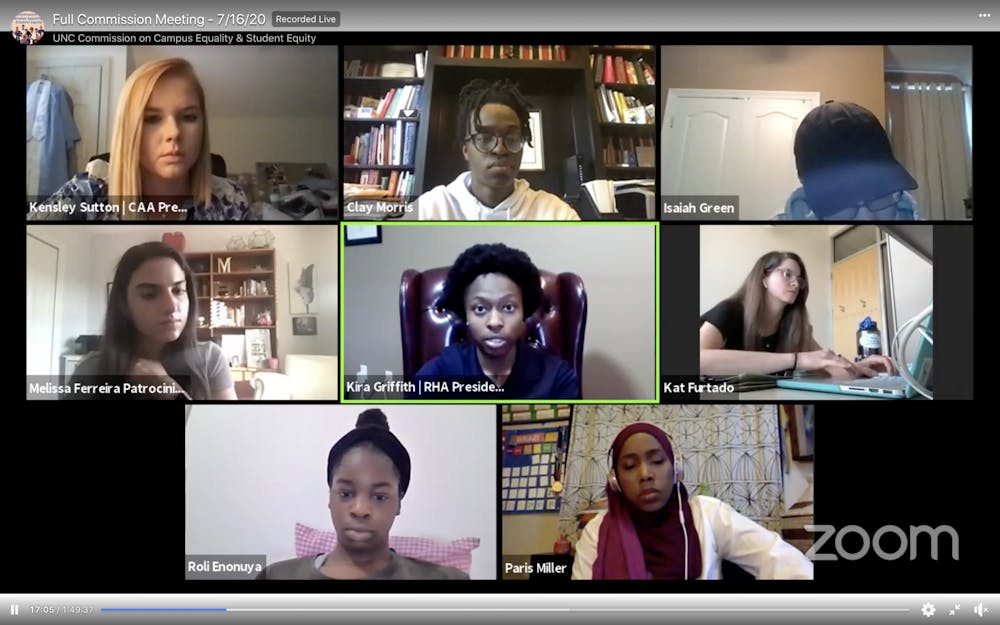“We want students to be protected and safe, but as long-term residents, we need to be protected and safe as well,” she said.
Kira Griffith, president of the Residence Hall Association, said some students are concerned about the safety of returning to campus because of possible spread of COVID-19, while others are worried about having to remain in living situations that are not conducive to studying or their mental health if they can’t go back to campus.
Griffith said residence halls will have signage to encourage social distancing, masks will be required in common spaces and residents may not be permitted to visit residence hall communities other than their own.
Danielle Dulken, a graduate student and member of the Anti-Racist Graduate Worker Collective at UNC, shared a set of demands issued earlier this summer by the collective.
Their demands include remote-only instruction, no staff furloughs, retained full pay and benefits for all workers and for UNC to grant all graduate workers a universal one-year degree extension.
“As graduate workers, we have timelines on our work and we’re not able to do our research because all of the University archives are closed,” she said. “The University not granting us extensions means that we’re unable to do our dissertations.”
Dulken also brought up issues regarding the availability of broadband internet and safe housing for students who need it and expanding mental health resources.
Devin Case-Ruchala, a graduate student, senator in the Graduate and Professional Student Federation and member of the Anti-Racist Graduate Worker Collective, shared concerns about creating a productive teaching environment as a teaching assistant and how social distancing norms will be enforced in the classroom. They said they are worried about the mental health stress of being required to teach in person and having a higher risk of being exposed to COVID-19.
Dawna Jones, assistant dean of students and chairperson of the Carolina Black Caucus, shared that housekeeping and facilities staff are worried about not having enough access to personal protective equipment and COVID-19 testing locations.
She also said faculty and staff in the caucus have concerns about their ability to choose whether or not to return to in-person work and their access to mental health resources.
Tamiya Troy, a commission member and president of the UNC Black Student Movement, spoke about student concerns regarding when financial aid information will be released and how the University is using CARES Act funding.
“Students were told that the CARES Act would replace standing aid in their packages,” she said. “I’m not sure what the University would be doing with the money, taking it out and replacing, whatever the case may be, but that doesn’t seem transparent and it seems very shady, actually, to know that whatever we had originally would be replaced.”
To get the day's news and headlines in your inbox each morning, sign up for our email newsletters.
Debbi Clarke, associate provost for strategy and special projects, responded that nothing “shady” was happening with the allocation of financial aid to students at UNC.
“There was no untoward behavior or activity in the Office of Student Scholarships and Aid,” she said. “All they do is work to make sure that all students’ financial aid needs are met.”
Commission Member Collyn Smith also shared concerns during the meeting about how community standards will apply to Interfraternity Council and Panhellenic Greek life on campus.
Smith said if the groups continue to hold social events, it will affect the campus community and greater Chapel Hill community.
“They have consistently, historically, traditionally gotten away with essentially everything they’ve wanted to do with very little consequences,” Smith said. “This is something I think administration needs to take a much more firm stand on.”
@sararaja_
university@dailytarheel.com



